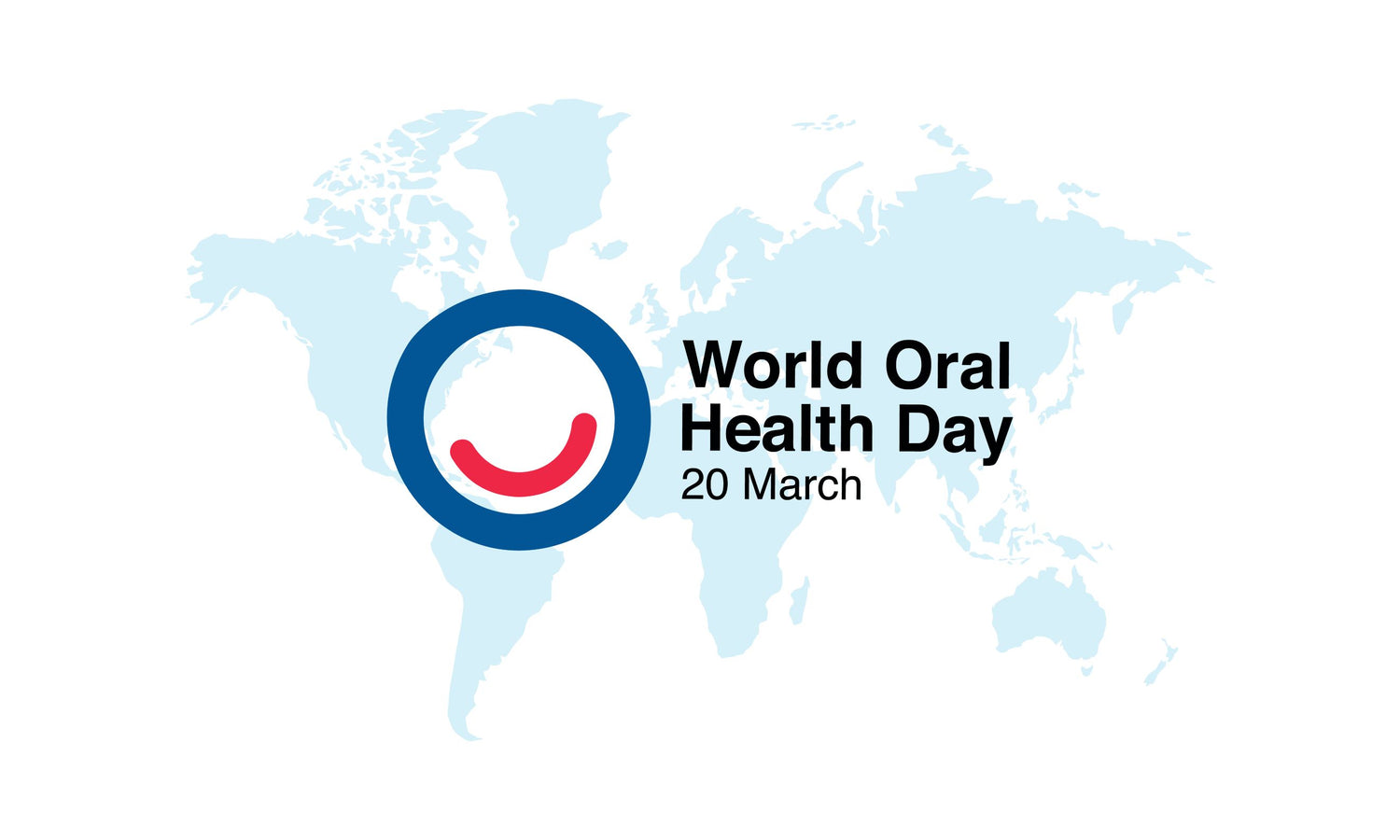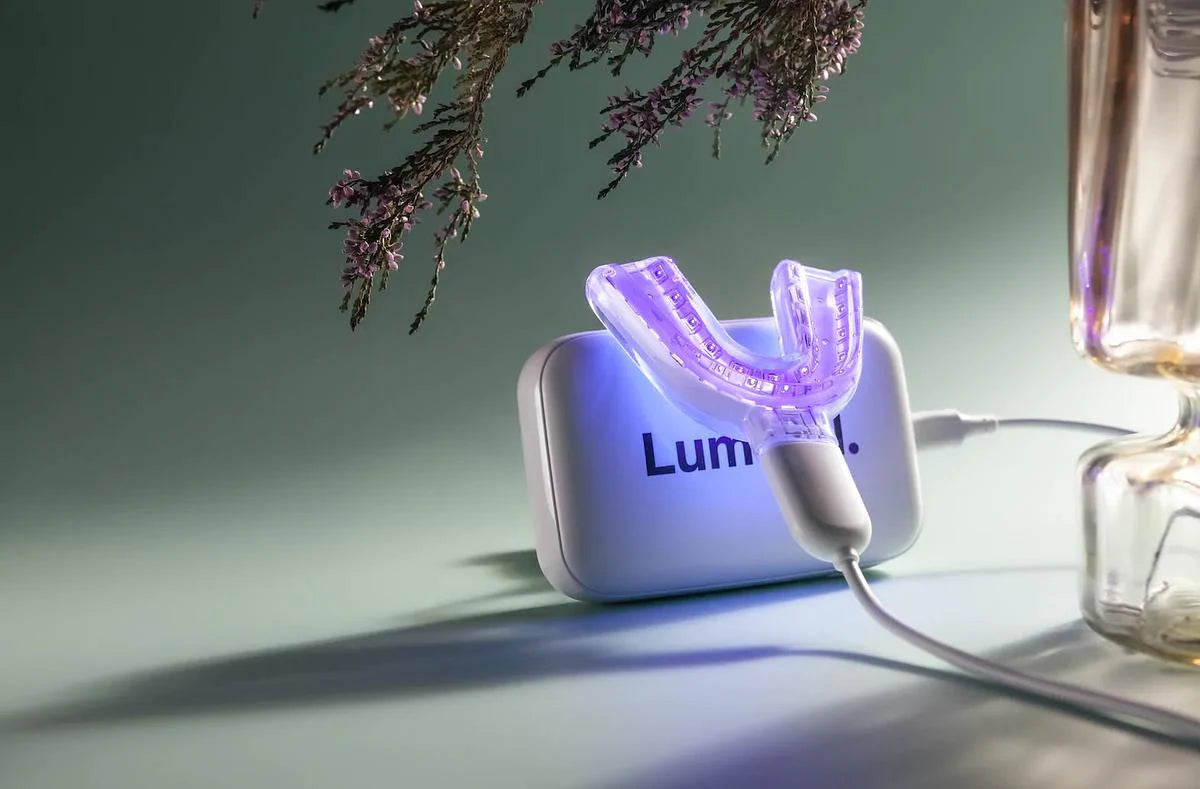World Oral Health Day is celebrated annually on 20 March to raise awareness of good oral hygiene and its importance for the whole body's health. Special attention to the importance of oral health is needed at this time, as studies reveal that dental and oral bacteria are clearly linked to many chronic diseases in the body.
In addition to heart disease, oral diseases are linked to lung disease, diabetes, and metabolic problems in healthy people. According to Swedish researchers, people with periodontal disease (i.e., inflammation of the attachment tissues of the teeth) are about a fifth more likely to develop pancreatic cancer than people with healthy gums. The disease risk also increases in patients who have already lost teeth, indicating advanced periodontitis (1).
According to the World Health Organisation (WHO), periodontal disease is estimated to affect around 19% of the world's adult population. This means more than one billion cases worldwide. The main risk factors for periodontal disease are poor oral hygiene and tobacco use.
Poor oral health is also reflected in children. Earlier this month, the UK Oral Health Foundation called for urgent action to improve the oral health of children in the UK. The organisation noted that the number of children having their teeth extracted under general anaesthesia in the UK has increased "catastrophically." More dental resources and education on the importance of careful oral self-care are needed to help the situation.
The World Health Organisation (WHO) has also drawn attention to the deterioration of oral health. According to the Global Oral Health Status Report, published last November, almost half of the world's population suffers from various oral diseases, and the number of cases of oral diseases has increased by one billion worldwide in the last 30 years (2). High sugar intake, smoking, and problematic alcohol consumption all contribute to the global oral health crisis, the WHO said in its report.
Periodontal disease is a problem for many
Periodontitis is a long-standing inflammation of the gums. Over time, the inflammation damages the tissue that attaches teeth to the jawbone, which can cause the collagen fibres that hold the teeth to the jawbone to break off, leading to tooth loss. Early signs of periodontal disease include red gums, bleeding gums, and bad breath.
Inflammation of the gums causes low-grade inflammation, which affects blood vessel health and the performance of athletes, among other things. Bacteria from the tooth surface and gum pockets can enter the body via the bloodstream when teeth are brushed and food is chewed. Even asymptomatic oral conditions can affect the health of the whole body.
- Statistics show that people with a healthy mouth live longer. Every missing tooth reduces life expectancy (6). This is talked about far too little, says Tommi Pätilä, a cardiac surgeon at HUS New Children's Hospital. He is also one of the developers of the antibacterial Lumoral method.
Lumoral supports oral health
Lumoral is a medical device designed to improve oral hygiene and oral health. Lumoral treatment is suitable for those with difficult-to-treat gum diseases such as periodontitis. Lumoral is scientifically proven to be the best available home treatment for periodontitis patients and the maintenance of implants. In February, Lumoral Junior for children was launched.
- Extensive research shows that dental and oral bacteria are linked to heart disease. Oral diseases are also linked to lung disease, diabetes, and metabolic problems in healthy people, among others, says Pätilä.
According to Pätilä, more than 10% of the Finnish population has severe periodontitis in their mouths. In this case, the inflamed area around the tooth's attachment tissues can be as large as the size of a palm. Even in milder cases, an inflamed "wound surface" causes low-grade inflammation in the body, but less so.
Pätilä adds that there is evidence, for example, that diabetes increases the risk of periodontal disease. On the other hand, the chronic inflammatory state associated with periodontitis impairs blood sugar regulation.
- As periodontitis is linked to many systemic diseases of the body, early detection and treatment are essential for the patient's overall health.
Although regular brushing and flossing is the best way to clean teeth, studies show that brushing leaves up to half the plaque on the tooth surface. Lumoral treatment has been developed to combat the residual plaque that causes oral disease and to support good oral hygiene (3).
- Good oral health is vital for people of all ages. The mouth undergoes many changes throughout life, and good daily oral care routines help maintain good oral health. A healthy mouth cannot be taken for granted. That's why it's important that World Oral Health Day is celebrated every year to remind us of this, says dentist Pirta Liljekvist, who herself is a Lumoral user and also recommends Lumoral to her patients as part of good oral hygiene.
References
1) Yu, J., Ploner, A., Chen, M.S. et al. Poor dental health and risk of pancreatic cancer: a nationwide registry-based cohort study in Sweden, 2009–2016. Br J Cancer 127, 2133–2140 (2022). https://doi.org/10.1038/s41416-022-02018-8
2) Benzian H, Watt R, Makino Y, Stauf N, Varenne B. WHO calls to end the global crisis of oral health. Lancet. 2022 Dec 3;400(10367):1909-1910. doi: 10.1016/S0140-6736(22)02322-4
3) Pakarinen, S., Saarela, R. K. T., Välimaa, H., Heikkinen, A. M., Kankuri, E., Noponen, M., Alapulli, H., Tervahartiala, T., Räisänen, I. T., Sorsa, T., & Pätilä, T. (2022). Home-Applied Dual-Light Photodynamic Therapy in the Treatment of Stable Chronic Periodontitis (HOPE-CP) Three-Month Interim Results. Dentistry Journal, 10(11), [206]. https://doi.org/10.3390/dj10110206



Leave a comment
This site is protected by hCaptcha and the hCaptcha Privacy Policy and Terms of Service apply.